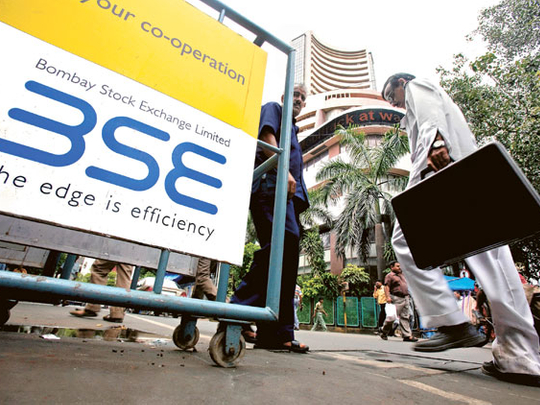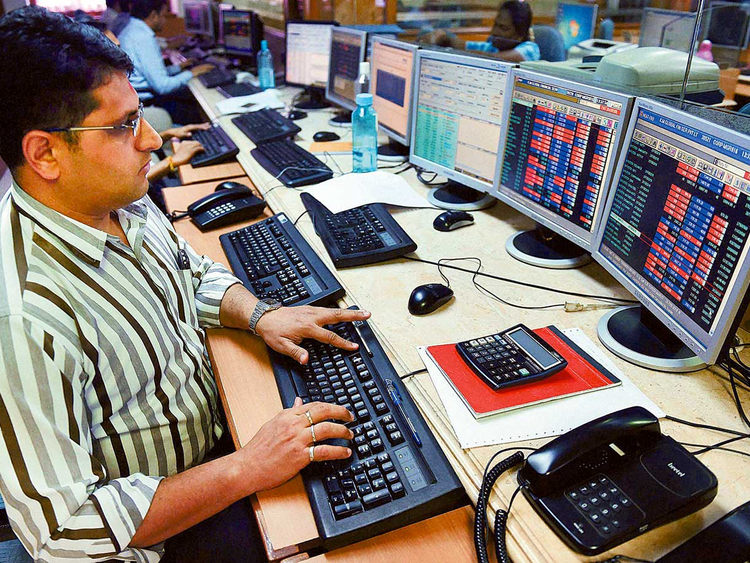
Mumbai: Faith in India's economy and its weather is giving overseas investors the confidence to snap up equities at the quickest pace in more than a year.
Traders are shrugging off the most expensive stock valuations since 2011, sending Indian shares back toward a bull market amid forecasts for the strongest monsoon in two decades and data showing the nation growing faster than all other major economies. Inflows may continue as the benefits of Prime Minister Narendra Modi's policies emerge in corporate earnings reports, investors including Mark Mobius and BNP Paribas SA said.
"Foreign investors are looking for growth; there aren't many places to get it and that's why India stands out," Prashant Bhayani, chief investment officer for Asia at BNP Paribas Wealth Management, said in an interview in Singapore. "Valuations aren't cheap relative to history but we expect earnings will start to pick up gradually from depressed levels. That's going to provide a tailwind for the market. We are overweight on India."
Foreign investors have bought $1.5 billion of shares since April 1, the second-highest in Asia excluding Japan, after pouring $4.1 billion in March alone as global risk appetite revived and Modi took steps to boost rural demand and investment. The benchmark S&P BSE Sensex rose 17 percent from a low reached in February through Thursday, putting India on course to become the first among markets valued at more than $1 trillion to crawl back from a bear market this year.
Modi has opened sectors such as railways and defense, helping draw record foreign direct investment in 2015, narrowed the current-account gap by curbing gold imports, quickened infrastructure building and limited the budget deficit to a nine-year low.
The steps are beginning to take hold: 66 percent of the companies in the NSE Nifty 50 Index posted March-quarter results that beat or matched estimates, versus 52 percent in the previous three months. Operating profits increased 9 percent year-on-year in the period, the most since September 2014, data compiled by Bloomberg show.
Cycle turning
"The narrative on the Modi government will change over the next few months because the earnings cycle is turning," Ridham Desai, head of India research at Morgan Stanley, said in an interview with Bloomberg Quint in Mumbai. "People were looking at the earnings cycle and thinking the government hasn't done enough work."
The brokerage upgraded Indian stocks to overweight and Citigroup Inc. raised its March 2017 Sensex target by 7 percent, citing improving economic indicators. Data last week showed India's GDP expanded by a world-beating 7.6 percent in the year ended March, cementing the nation's position as a bright spot among emerging markets as China slows while Russia and Brazil contract.
Mobius, executive chairman at Templeton Emerging Markets Group, said he will add more shares of smaller companies.
"Modi's policy stance and philosophy will start feeding into the economy, accelerating the pace and that's going to have a terrific impact," Mobius said in an interview to Bloomberg Quint. "If you factor in the reforms, India is on the cusp of an interesting opportunity."
Monsoon Weather
Indian stocks rose to a seven-month high earlier this week as the central bank said its monetary policy will remain accommodative even as it left borrowing costs at a five-year low. It also cited a strong monsoon among factors that could help offset upward inflationary pressures.
India's monsoon, which accounts for four-fifths of the country's rainfall, reached the mainland in southern Kerala state on Wednesday. The government is counting on above-normal precipitation this year to help control food prices, boost farm production and ease a drinking water shortage caused by back-to-back droughts.
One wild card for equities is whether Raghuram Rajan will remain as Reserve Bank of India governor. Rajan on Tuesday urged patience regarding his future after his term ends in September. The former International Monetary Fund chief economist is a darling of investors, who have lauded his policies that lifted the rupee from a record low, halved consumer-price gains and rebuilt currency reserves since taking office in 2013.
An exit by Rajan won't have a lasting impact if he's replaced by someone "equally capable, neutral, non-political person," Mobius said.
Need Proof
Some analysts are taking a cautious approach to equities. UBS Group AG, for one, is waiting to see stronger proof of improving expansion before raising its projections.
"Earnings are recovering and some high-frequency data points have turned positive, but the evidence isn't big and broad enough," Gautam Chhaochharia, head of research at UBS Securities India Pvt. in Mumbai, said in an interview last month.
The Sensex trades at 16.5 times 12-month projected profits, the costliest since January 2011 and higher than its five-year mean of 14. Lofty valuations make India vulnerable to capital outflows, as happened earlier this year. Foreigners pulled a total $2.9 billion from stocks in January and February amid a global selloff, ending the nation's longest-ever bull market.
The recent rally, which has pushed up the Sensex to a seven-month high, could sputter if the buoyancy in global stocks ebbs, UBS's Chhaochharia said.
The Sensex declined 0.1 percent to 26,742.07 at 10:03 a.m. in Mumbai. The gauge is poised for a 0.4 percent retreat this week, ending two consecutive weeks of advance.
Others say the potential for earnings and the economy outweigh the market's elevated valuations.
"We're are thinking of increasing exposure to the emerging world and India would be high on the list," Shane Oliver, head of investment strategy at AMP Capital Investors Ltd., which oversees about $120 billion, said by phone from Sydney. "India's share market is expensive compared with other emerging markets, but it has better fundamentals."













